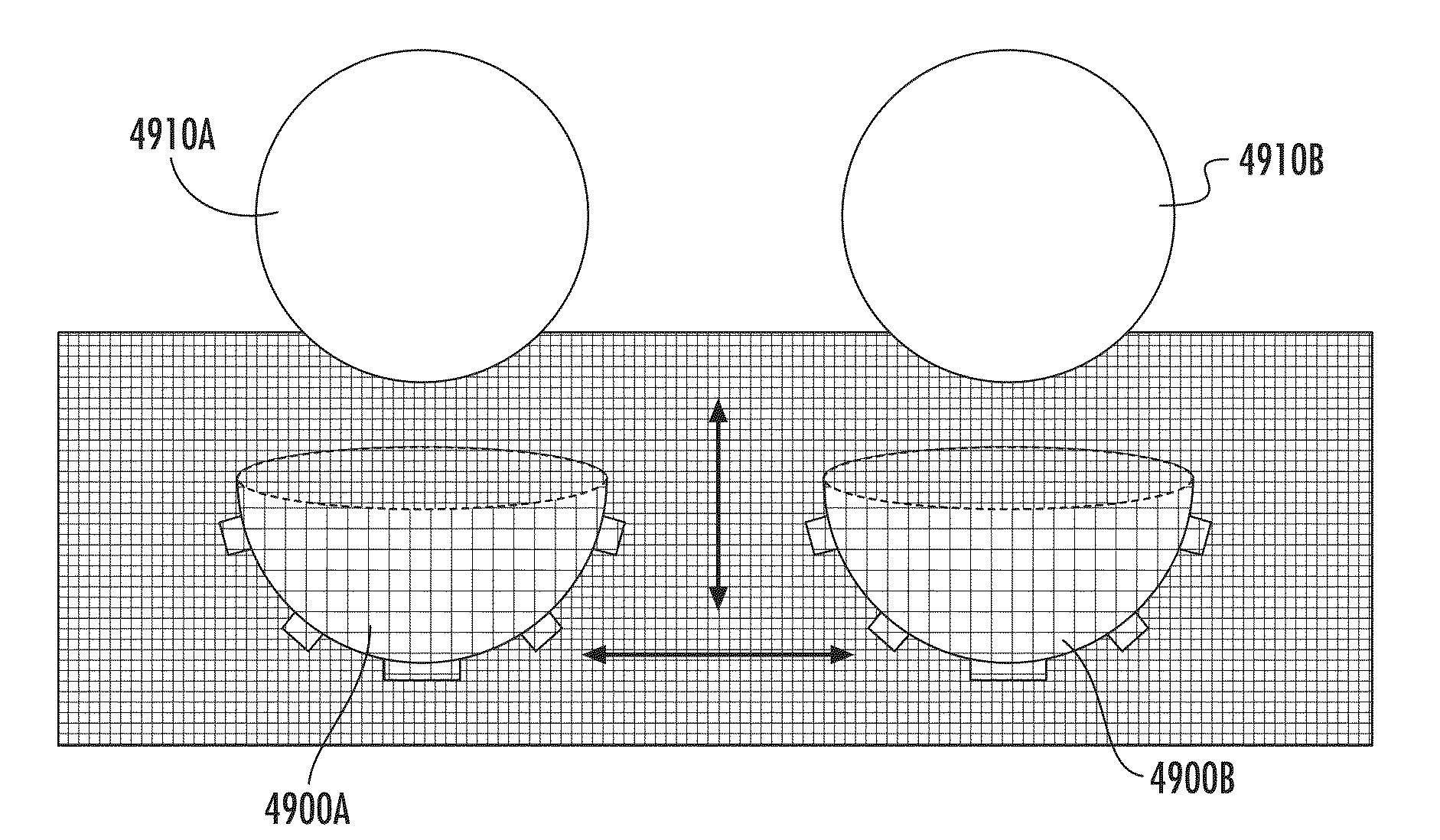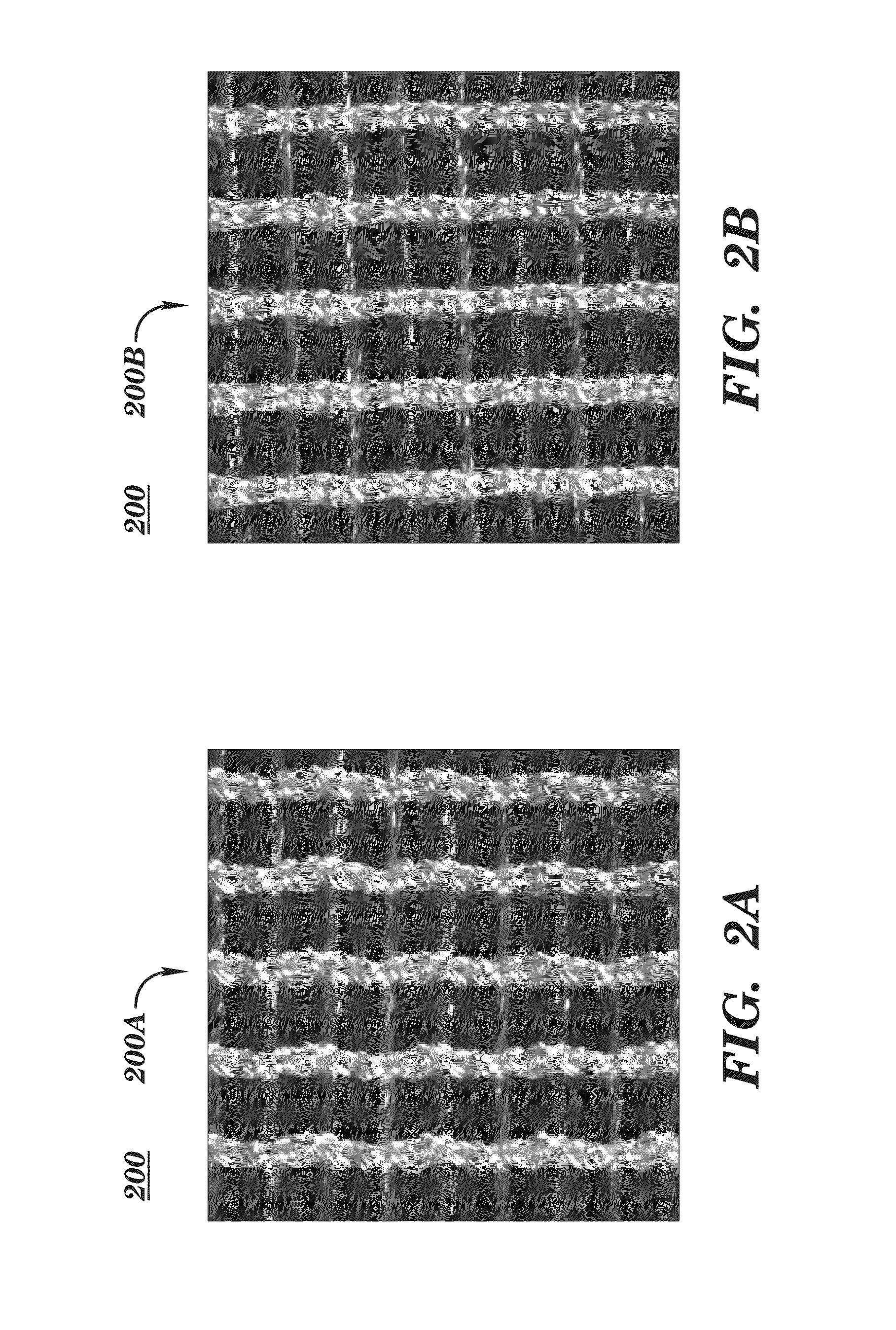Silk medical device for use in breast augmentation and breast reconstruction
a breast augmentation and breast technology, applied in the field of surgical silk mesh or scaffold device, can solve the problems of scar encapsulation and tissue erosion, pain, and a variety of complications, and achieve the effect of increasing tension
- Summary
- Abstract
- Description
- Claims
- Application Information
AI Technical Summary
Benefits of technology
Problems solved by technology
Method used
Image
Examples
example 1
Characteristics of a Silk-Derived Medical Device
[0287]We have developed a unique, bioresorbable, silk-derived medical device (a silk-derived bioresorbable scaffold or “SBS”), suitable, among other uses, for use as a supporting scaffold in human breast reconstruction surgery. An embodiment of this medical device has the trade name SeriScaffold™. The desired properties (characteristics) of the medical device (i.e. the SBS) include: long-term bioresorbability; utility as a surgical scaffold; easy to use and suture with no unraveling upon trimming; no side specificity; no swelling / shrinking with hydration, and; inter-sample consistency. Additionally, the pore size of fabric or material which constitutes this desired medical device should facilitate transport of fluid and cells to allow native repair of the tissue defect. SeriScaffold™ is an example of an embodiment of the stated SBS that has been developed for providing soft tissue support and which has all the characteristics set forth...
example 2
Two-Stage Breast Reconstruction
[0290]SeriScaffold™ surgical scaffold (warp knitted, multi-filament, bioengineered, silk mesh or fabric with a “node lock” knit pattern or structure) is obtained from Allergan Medical (Santa Barbara, Calif. and Medford, Mass.). SeriScaffold™ surgical scaffold is used as a transitory scaffold for soft tissue support and repair in two-stage breast reconstruction to reinforce deficiencies where weakness or voids existed that required the addition of material to obtain the desired surgical outcome. SeriScaffold™ surgical scaffold is supplied sterile in a single-use 10 cm×25 cm size, with one device utilized per breast. The surgical scaffold is placed during each subject's stage I breast reconstruction with a tissue expander placement procedure.
[0291]The procedure followed in this Example is in Stage I—Tissue Expander and SeriScaffold™ Surgical Scaffold Placement is as follows. SeriScaffold™ surgical scaffold is prepared and used in accordance with the supp...
example 3
Single Stage Breast Reconstruction
[0298]SeriScaffold™ silk scaffold is obtained from Allergan Medical for use in breast reconstruction for tissue support and repair in direct-to-implant breast reconstruction surgery. In this Example SeriScaffold™ is used as surgical scaffold in direct-to-implant (DTI), or single-stage, breast reconstruction for soft tissue support and repair. The SeriScaffold™ surgical scaffold is used as a transitory scaffold for soft tissue support and repair to reinforce deficiencies where weakness or voids exist that required the addition of material to obtain the desired surgical outcome.
[0299]SeriScaffold™ surgical scaffold is supplied sterile in a single-use 10 cm×25 cm size, with one device utilized per breast. The device is implanted in the subject immediately post mastectomy, during the breast implant placement surgery, in a direct-to-implant breast reconstruction procedure. In this Example SeriScaffold™ surgical scaffold in DTI breast reconstruction is us...
PUM
| Property | Measurement | Unit |
|---|---|---|
| Structure | aaaaa | aaaaa |
| Shape | aaaaa | aaaaa |
| Circumference | aaaaa | aaaaa |
Abstract
Description
Claims
Application Information
 Login to View More
Login to View More - R&D
- Intellectual Property
- Life Sciences
- Materials
- Tech Scout
- Unparalleled Data Quality
- Higher Quality Content
- 60% Fewer Hallucinations
Browse by: Latest US Patents, China's latest patents, Technical Efficacy Thesaurus, Application Domain, Technology Topic, Popular Technical Reports.
© 2025 PatSnap. All rights reserved.Legal|Privacy policy|Modern Slavery Act Transparency Statement|Sitemap|About US| Contact US: help@patsnap.com



